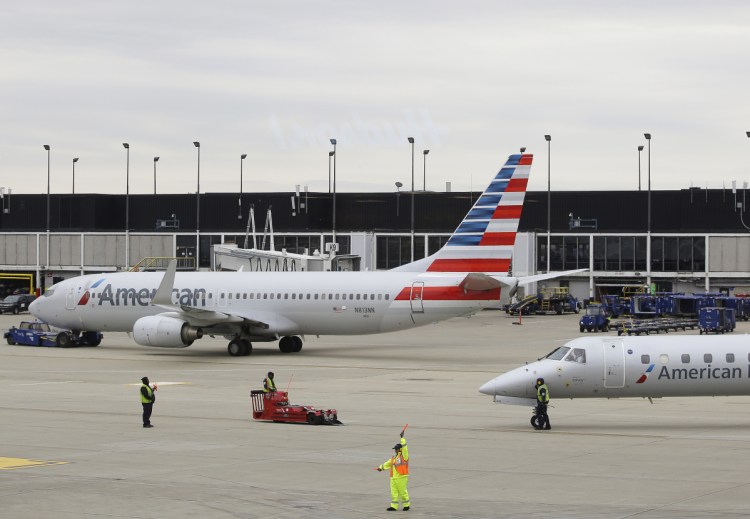The NAACP on Tuesday lifted its nine-month travel advisory against American Airlines, after determining that the company has made “substantial” progress in addressing concerns of mistreatment of black passengers.
Since the civil rights organization issued its warning to African-Americans last October after receiving complaints of discrimination, American Airlines has begun implementing a series of changes to examine and overhaul how it trains employees and treats customers, the company said.
Among the steps the airline said it has taken: launching a companywide training on implicit bias, conducting an independent analysis of where the company falls short on diversity and inclusion measures, overhauling how it investigates customer complaints of discrimination, and making it easier for its own employees to report concerns.
“We appreciate that they stepped up and are now pursuing an aggressive course of action to address the concerns that we raised,” Derrick Johnson, president and chief executive of the NAACP, said in an interview.
Johnson, who announced the lifting of the travel advisory at the NAACP annual convention in San Antonio, said the organization has engaged in a “very candid, open and ongoing dialogue” with American Airlines about the “realities for American-Americans” who travel on American and other airlines.
The NAACP had issued its unusual warning after several incidents involving American Airlines. Those include an African-American man who said he was forced to give up his seat on a flight from the District of Columbia to Raleigh-Durham in North Carolina after he responded to discriminatory comments hurled at him from two white passengers and an African-American woman who said she was removed from a Miami-to-New York flight after she complained to a gate agent about having her seat changed without her consent.
“We received calls from our members across the country consistently complaining about the same set of activities,” Johnson said. “I hope the corrective action that American Airlines is pursuing would assist other airlines in making sure that African-American passengers are not singled out in any form that appear to be discriminatory in nature.”
Doug Parker, chief executive and chairman of American Airlines, said the company would continue building its implicit bias curriculum to ensure that employees and customers feel “respected and safe.”
“This is not to say our work is complete by any stretch,” Parker said in a statement. “On the contrary, we have only just begun.”
The airline began training 6,000 company leaders to recognize and address their own implicit biases in January. It rolled out the training this summer to all 130,000 employees through an online program. The company plans to launch a customized in-person training by the end of the year, to carry over into 2019, so employees can better understand how implicit bias applies in workplace situations.
The airline implemented a new policy to address discrimination complaints, requiring a specialized team to call customers to discuss their experience. All customer complaints related to discrimination should now be routed through the specialized team for prompt investigation.
Johnson said the NAACP would continue to monitor American Airline’s progress on their commitment to address bias complaints.
“They understand this issue cannot be addressed in any one-day seminar,” Johnson said. “It’s an institutionalized process and the actions they are taking are substantive in nature.”
The new effort by corporations to address implicit bias comes after a string of high-profile instances of discrimination against African-Americans going about their everyday lives, with corporate representatives summoning the police against black people waiting at Starbucks for a business meeting, shopping for prom at Nordstrom Rack, working out at LA Fitness, or trying to use a valid coupon at CVS.
The travel warning against American Airlines was only the second in the 109-year history of the National Association for the Advancement of Colored People.
Send questions/comments to the editors.


